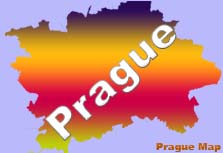First Czechs head to US without visas under Bush legacy
 Prague - Lenka Cilova had been joking when she said she could be in for 15 minutes of fame before boarding her long-planned New York flight on Monday.
Prague - Lenka Cilova had been joking when she said she could be in for 15 minutes of fame before boarding her long-planned New York flight on Monday.
Then it happened.
"Can I start over?" the petite, blue-eyed blonde asked a mob of reporters who swarmed the 27-year-old film producer with blinding camera lights at Prague's international airport as she joined four other Czechs, including two government ministers, who hopped a plane to the United States without a visa in their passports.
Instead they flashed a sheet of paper they almost lovingly called ESTA, short for Electronic System for Travel Authorization, which is Washington's new online registration for travellers from non-visa countries.
Citizens of the Czech Republic, along with citizens of six other nations, recently joined the ranks of 27 countries whose citizens are allowed to travel to the United States without visas. Czechs did so on November 17, a symbolic day that marks a collapse of communism in the former Czechoslovakia.
"I am traveling on ESTA so I hope they let me in," Vice-Premier Alexandr Vondra quipped before reporters as he headed to his flight. He was heading overseas for a five-day working visit.
"One great injustice disappeared today. While Austrians and Germans did not need the visas for years, we had to undergo the degrading procedure. That is over," he continued on a serious note.
And while Cilova said she wanted to check out the mood in the post-election New York, officials in Prague praised outgoing President George W Bush and his administration for the change of policy.
They stressed the Czech Republic had to earn visa-free travel. But many view it as a farewell reward for the country's leaders, who have been among the closest European allies of the outgoing US president.
Speaking at one of Monday's many events commemorating the fall of communism, Czech Prime Minister Mirek Topolanek pined for Bush's policy of spreading democracy.
"Most inhabitants of this planet have a government which does not respect their basic freedoms," he said. "It is a shame on the rest of us - who are luckier - that we are unable to change it," he said.
"When we attempt to do so, such as in Afghanistan or Iraq, we are constantly coming across voices of doubters who would rather leave the citizens of those state to their own fate."
Despite the close ties, the United States kept the visa requirement in place for a long 19 years after communism collapsed.
Czechs' frustration reached new highs when the requirement stayed in place after their country entered the European Union in 2004.
The US visa policy created an inequality within the enlarged European Union, as most old EU members and ex-communist Slovenia did not need visas to travel to the United States.
Tired of waiting for Brussels' help with scrapping the unpopular US policy, Prague sealed a bilateral deal with Washington, which paved the way for visa-free travel.
Under the agreement, the Czech Republic agreed to stricter security rules, aimed at reducing the threat of terrorism, than those already in place for the EU's old members.
The new rules require visitors to have a machine-readable passport with biometric data and to register online before their trip. Critics have said the new system amounts to visas in electronic form.
But, for Czech tourists, the system is a breeze compared to the old procedure, which included a consulate interview, lots of red tape and a hefty fee.
"It made my trip easier," Cilova said. "You don't need to say where you will stay. Nobody cares about your bank statements."
Accompanied by a friend, the young woman was headed to New York for a week of sightseeing, shopping, clubbing and perhaps a Broadway show.
"You fly for a weekend to London, you fly for a week to New York," her friend Veronika Zamecnikova, 28, said cheerfully before the duo entered the gate. (dpa)